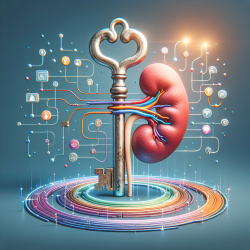Understanding Acute Kidney Injury: A New Approach for Practitioners
Acute Kidney Injury (AKI) is a significant health concern that can lead to chronic kidney disease (CKD) and increased mortality. Despite its severe implications, follow-up care by nephrologists remains uncommon. The recent research from the 15th ADQI Consensus Conference sheds light on the importance of tracking AKI patients and offers a framework for improving patient outcomes.
Key Findings from the Research
The ADQI working group identified several critical components necessary for effective patient tracking post-AKI:
- Essential data elements to trace the natural history of AKI patients.
- Minimum infrastructure requirements for data acquisition and analysis.
- Key barriers to data integration and proposed solutions.
Implementing the Research Outcomes
Practitioners can enhance their care strategies by incorporating the following recommendations from the research:
- Standardize Data Collection: Utilize a minimal dataset to ensure consistency in tracking AKI episodes. This includes patient identifiers, renal function metrics, and follow-up plans.
- Enhance Electronic Health Records (EHR): Leverage EHR systems to facilitate longitudinal tracking and improve interoperability between healthcare providers.
- Educate Patients: Inform patients about their AKI diagnosis and the importance of follow-up care to empower them in managing their health.
Overcoming Barriers
To achieve successful data integration, practitioners must address several challenges:
- Fragmented Health Records: Advocate for improved linkage between different healthcare systems to ensure comprehensive patient data.
- Patient Engagement: Utilize tools like the Blue Button Initiative to give patients access to their health records, fostering active participation in their care.
Encouraging Further Research
While the ADQI research provides a robust framework, there is still much to explore. Practitioners are encouraged to delve deeper into the following areas:
- Developing methods to harmonize data from multiple sources.
- Exploring effective post-AKI care strategies and interventions.
- Identifying patient stratification techniques for personalized care.
To read the original research paper, please follow this link: Establishing a continuum of acute kidney injury – tracing AKI using data source linkage and long-term follow-up: Workgroup Statements from the 15th ADQI Consensus Conference.










